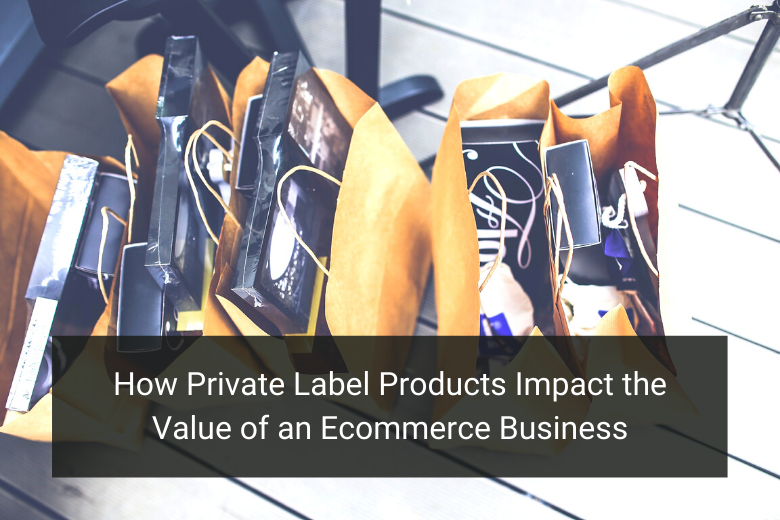Have you ever looked at a product and felt immediately drawn to it?
Have you ever felt like a brand and its storefront speak directly to your own personality? That sense of connection, that capacity to seamlessly target a specific niche, is incredibly powerful for any business.
And that’s precisely what private label products bring to the table.
What is a Private Label Product, Exactly?
I frequently see white label products and private label products confused and conflated with one another.
To some extent, this is understandable. Both are frequently produced and sold in a business-to-business context before being relabelled and presented to consumers.
However, there’s one crucial difference that you need to keep in mind. Whilst white label products are often sold to multiple retailers, private label products are built on exclusivity. They are produced, marketed, and sold by a single business.
This occurs independently of whether or not the seller is the actual manufacturer of the product.
What Are the Advantages of Private Labeling?
“https://www.ecommerceceo.com/private-label-products/” target=”_blank” rel=”noopener noreferrer”Private labeling is predicated on your business offering someone unique.
While you’ll certainly have competitors that sell similar products to yours, the idea is that you do it better. Private labeling allows you to build up a unique brand while also exercising a great deal of control over your products and inventory.
It’s also an excellent way to target a specific niche. Today’s customers make purchase decisions based as much on experience as anything else. If they feel a particular brand speaks to their own personality – and that brand provides excellent private label products – then they’ll very likely end up as repeat customers.
A source of recurring revenue from an investor’s perspective, in other words.
Private labeling can also result in lower product unit costs than you’d see when selling third-party, branded products. You’re either manufacturing them in-house, outsourcing manufacturing based on your specifications, or purchasing them directly from a partnered organization.
Either way, you’re likely looking at better margins on your sales than you would be with branded products.
Let’s say, for example, you’re a professional beautician with several decades of experience. You could build a private-label, online storefront that specializes in personal care and hygiene products with that expertise as a foundation.
From there, you could either sell those products to a business partner or simply market and sell them directly to consumers.

Getting Started With Private Labels
When it comes to selling private label products through your ecommerce business, you have a few options.
First, you can make the products yourself. This generally works best if you have a great deal of in-house expertise and access to the necessary manufacturing infrastructure.
You’ll be able to exercise complete control over your supply chain, and in so doing you’ll also be able to better guarantee the quality of your products.
You may also outsource the manufacturing to a third-party. You’ll still be leveraging your own expertise to produce your inventory, but you don’t need to worry about having in-house manufacturing to do so.
The drawback, of course, is that product quality can suffer if you end up choosing the wrong manufacturing partner.
Another option is to simply partner with a private label brand and resell their products on your own storefront. If you’re looking to rapidly expand your inventory, you can mix private label products with white-label products, as well.
This, in turn, can help pull in more sales than you might otherwise have attracted.
Finally, if you have a great deal of on-hand capital, you might consider purchasing a private-label brand. Provided the brand you acquire already has a decent customer base and reputation, this can greatly improve both your business’s value and its potential for growth.
If you choose to go this route, it’s advisable to seek out a broker to help you navigate the purchase process.

What Makes For a Good Private Label Product?
Product quality aside, a successful private label product possesses the following traits.
- A unique look and feel. Private labels excel because they speak to their target demographic. People feel connected to them because they’re well-marketed and well-branded.
- They have the potential for recurring sales. Pet supplies, personal care products, hygiene products, supplements, and even some consumables such as food and drink.
- There’s a demand for them in the first place. There’s no point selling a private label product that no one is looking for. Amazon regularly lists its best-selling products. It’s worth perusing even if you don’t intend to sell private label products through the platform.
- Pricing. Generally, but not always, a private label product costs less than a branded product, but offers the same level of quality.
Note also that there are certain products where private labeling may not be a particularly wise decision.
Generally, these are fields in which large brands dominate the market, and where the barrier for entry is high enough that challenging that dominance simply isn’t worth the cost. The most noteworthy example involves high-end electronics.
While you should use your best judgment here, you’re likely not going to see a great deal of success selling private label smartphones or smart speakers. Less complex electronics such as headphones or computer peripherals may still be worth pursuing, however.
Other markets where private labeling is generally ill-advised are automotive, seasonal products, and industrial equipment.
It’s not that it’s impossible to sell private label products in any of these categories, mind you. It’s just that there are far easier ways to find success as an ecommerce organization.
Again, though – it’s all about what sort of inhouse expertise you possess, as well.
Final Thoughts
When it comes to valuing an ecommerce business, your product port folio and customer base both play an important role.
Well-branded, high-quality, and well-marketed private label products allow you to shore up both. And that, in turn, can make your business a far more attractive prospect for buyers.
Need a Shipping Solution?
Floship is an e-commerce order fulfillment provider based in Hong Kong. We help emerging e-commerce brands store, pick, pack and deliver their orders worldwide from our warehouses in either Hong Kong, Shenzhen or Europe.
Reach out by filling out our Get Global Solutions form and one of our solution experts will get back to you with a solid shipping solution.
Author
Christopher Moore is the Chief Marketing Officer at “https://quietlight.com/” target=”_blank” rel=”noopener noreferrer”Quiet Light Brokerage, an entrepreneur-led organization that aids in the preparation, marketing, negotiation, and closing on sales and acquisitions of six, seven, and eight-figure online businesses. He has a strong background in non-profit management and media.

Ready To Upgrade Your Logistic Solution?
Speak to Floship ecommerce logistic consultant about improving your global support chain today




